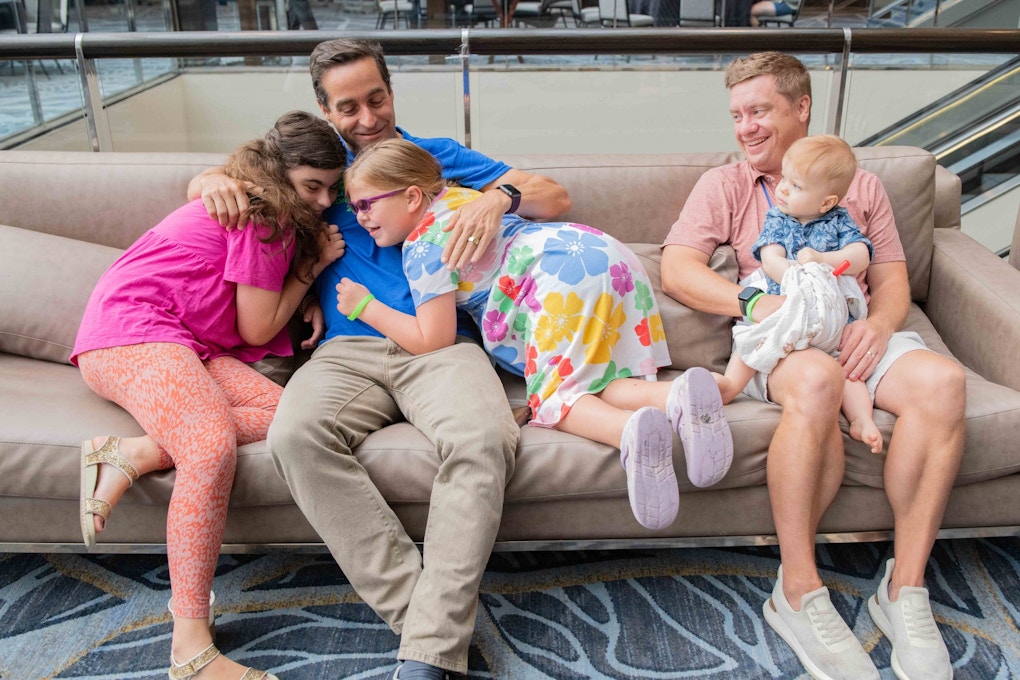
The Simons Foundation Autism Research Initiative (SFARI) is pleased to announce that Simons Searchlight has released new data for use in research studies. This data release includes over 3,600 individuals with 15 copy number variant (CNV) and 94 single gene variant conditions associated with autism and related neurodevelopmental conditions. Data from 19 genetic communities are included for the first time in this data release and are designated below with *. Approved investigators can request the data via SFARI Base.
Copy number variants (CNVs)
- 56 carriers of the 15q11.2 BP1-BP2 deletion
- 12 carriers of the 15q13.3 deletion
- 362 carriers of the 16p11.2 deletion
- 64 carriers of the Distal 16p11.2 deletion
- 265 carriers of the 16p11.2 duplication
- 25 carriers of the Distal 16p11.2 duplication
- 8 carriers of the 16p12.1 deletion
- 5 carriers of the 16p12.2 deletion*
- 15 carriers of the 16p13.11 deletion*
- 8 carriers of the 17q12 duplication
- 97 carriers of the 1q21.1 deletion
- 118 carriers of the 1q21.1 duplication
- 15 carriers of the 2p16.3 deletion
- 18 carriers of the 5p deletion*
- 28 carriers of the 7q11.23 duplication
Single genes
- 33 individuals with ADNP mutations
- 13 individuals with ANK2 mutations
- 34 individuals with ANKRD11 mutations
- 28 individuals with ARID1B mutations
- 10 individuals with ASH1L mutations
- 85 individuals with ASXL3 mutations
- 20 individuals with ATRX mutations*
- 18 individuals with AUTS2 mutations
- 5 individuals with BCL11A mutations*
- 9 individuals with BRSK2 mutations
- 5 individuals with CACNA1C mutations*
- 5 individuals with CASK mutations*
- 46 individuals with CHAMP1 mutations
- 21 individuals with CHD2 mutations
- 6 individuals with CHD3 mutations
- 29 individuals with CHD8 mutations
- 28 individuals with CLCN4 mutations
- 5 individuals with CNOT3 mutations*
- 9 individuals with CSDE1 mutations
- 90 individuals with CSNK2A1 mutations
- 28 individuals with CSNK2B mutations
- 6 individuals with CTBP1 mutations
- 185 individuals with CTNNB1 mutations
- 25 individuals with CUL3 mutations
- 10 individuals with DDX3X mutations
- 19 individuals with DEAF1 mutations
- 42 individuals with DLG4 mutations
- 13 individuals with DNMT3A mutations
- 28 individuals with DYNC1H1 mutations
- 61 individuals with DYRK1A mutations
- 12 individuals with EHMT1 mutations
- 17 individuals with EIF3F mutations
- 6 individuals with EP300 mutations*
- 23 individuals with FOXP1 mutations
- 7 individuals with GIGYF1 mutations
- 18 individuals with GRIN1 mutations
- 15 individuals with GRIN2A mutations
- 112 individuals with GRIN2B mutations
- 10 individuals with HECW2 mutations
- 45 individuals with HIVEP2 mutations
- 53 individuals with HNRNPH2 mutations
- 13 individuals with HNRNPU mutations
- 5 individuals with IQSEC2 mutations*
- 31 individuals with IRF2BPL mutations
- 17 individuals with KDM6B mutations
- 32 individuals with 17q21.31 deletion or KANSL1 mutation*
- 8 individuals with KMT2A mutations*
- 13 individuals with KMT2C mutations
- 13 individuals with KMT2E mutations
- 13 individuals with KMT5B mutations
- 12 individuals with MBD5 mutations
- 15 individuals with MED13 mutations
- 108 individuals with MED13L mutations
- 40 individuals with MEF2C mutations
- 16 individuals with MYT1L mutations
- 5 individuals with NAA15 mutations*
- 8 individuals with NBEA mutations*
- 5 individuals with NCKAP1 mutations*
- 9 individuals with NEXMIF mutations
- 11 individuals with NR4A2 mutations
- 6 individuals with NRXN1 mutations
- 36 individuals with PACS1 mutations
- 8 individuals with PHIP mutations*
- 23 individuals with PPP2R1A mutations
- 165 individuals with PPP2R5D mutations
- 26 individuals with PPP3CA mutations
- 12 individuals with PTCHD1 mutations
- 7 individuals with SCN1A mutations
- 5 individuals with SCN1B mutations
- 224 individuals with SCN2A mutations
- 66 individuals with SETBP1 mutations
- 6 individuals with SETD2 mutations*
- 23 individuals with SETD5 mutations
- 9 individuals with SIN3A mutations
- 132 individuals with SLC6A1 mutations
- 7 individuals with SMARCA4 mutations
- 6 individuals with SMARCC2 mutations
- 5 individuals with SON mutations*
- 5 individuals with SOX5 mutations
- 211 individuals with STXBP1 mutations
- 134 individuals with SYNGAP1 mutations
- 15 individuals with TANC2 mutations
- 12 individuals with TAOK1 mutations
- 20 individuals with TBR1 mutations
- 15 individuals with TCF20 mutations
- 12 individuals with TLK2 mutations
- 16 individuals with TRIO mutations
- 21 individuals with TRIP12 mutations
- 7 individuals with UPF3B mutations
- 9 individuals with USP9X mutations
- 21 individuals with VPS13B mutations
- 6 individuals with WAC mutations
- 24 individuals with WDFY3 mutations
- 10 individuals with ZNF292 mutations*
Detailed medical, developmental and behavioral data collected through online surveys and phone interviews are available.
In addition, biospecimens are available from participants who have contributed blood samples. Biospecimens include cell lines (fibroblasts, lymphoblastoids and induced pluripotent stem cells) and DNA (derived from saliva, lymphoblastoids or whole blood). A complete list of currently available biospecimen data can be found here.
Some highlights of this release include
- 1,030 individuals with new baseline and/or longitudinal medical history data collected with our new Online Medical History Survey (replacing the Medical History Interview)
- 949 new Vineland-3 records
- 803 new records across Seizure History Survey and Annual Seizure Update
- Updated summaries of medical history, medications and previous diagnoses data integrating across online- and interview-collected data sources
Revised age-related data across lab results, medical history and Vineland-3 data are also available. To see a complete list of the measures available and the corresponding number of individuals with each genetic disorder for each measure, please click here.
Who can use the data?
The data are available for use by all approved researchers, regardless of SFARI funding. Research projects are not restricted to autism or other neurodevelopmental conditions. There is a six-month embargo on the genomic data, but there is no embargo on phenotypic data.
How can the data be accessed?
Researchers can log in to SFARI Base and apply to use the data. The application will be reviewed by SFARI staff, and once approved, researchers will be provided with information on how to download the data.
Researchers who have previously applied and been approved to access phenotypic data (i.e., from an earlier phenotypic data release) will automatically have access to this latest data release. Simply log in to SFARI Base to view and download the latest data set.
Researchers interested in publications using Simons Searchlight data can find all publications here (select the filter “Uses Resources From: Simons Searchlight”).
Can investigators recruit Simons Searchlight families for new research studies?
In addition to accessing phenotypic and genomic data, researchers can submit an application via SFARI Base to recruit Simons Searchlight participants into investigator-initiated research studies through the Simons Searchlight Research Match Program.
Applications are reviewed on a rolling basis. Researchers will receive further information about how to contact Simon Searchlight families once their application is approved.
The Simons Searchlight-SFARI Research Match website provides answers to many frequently asked questions about the research matching program.


